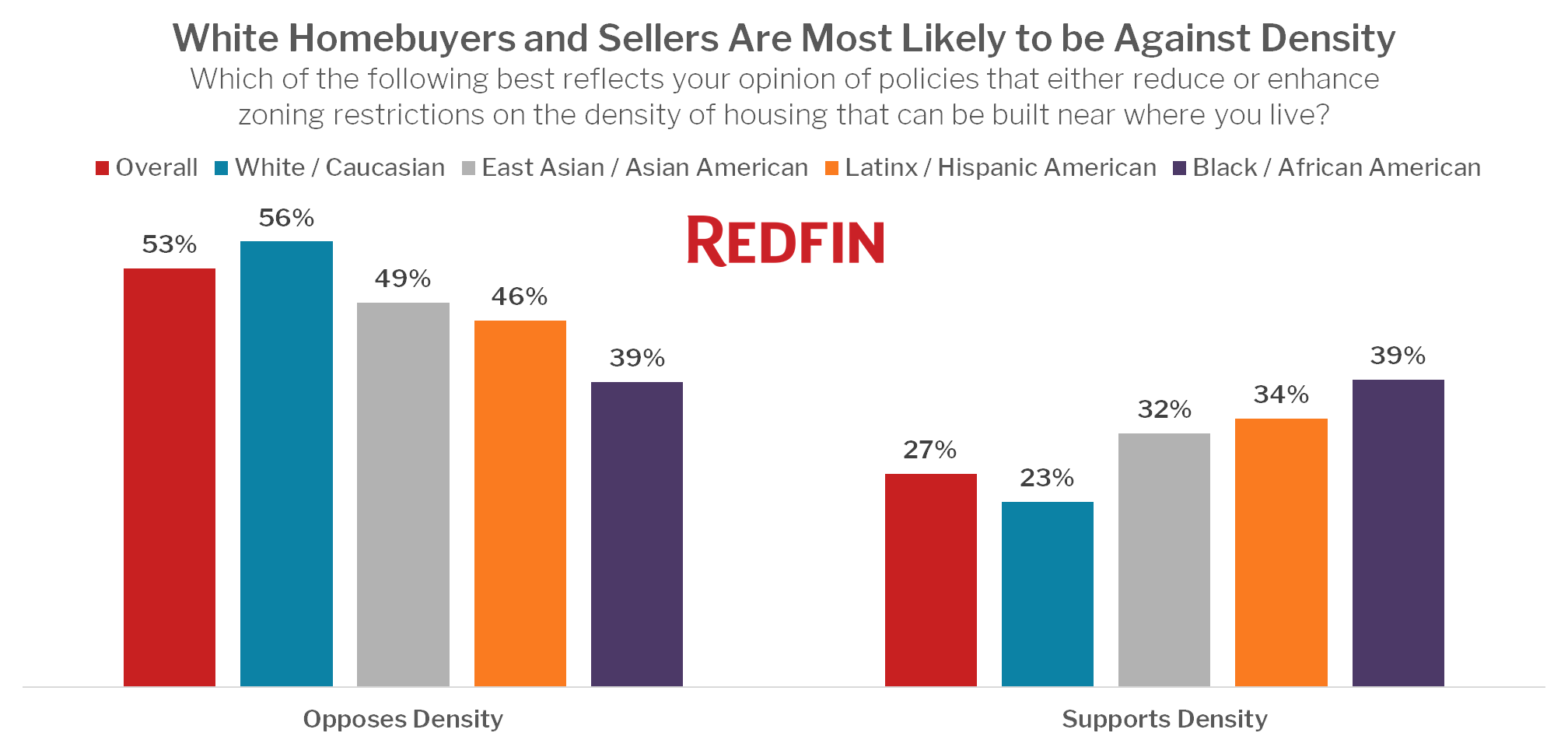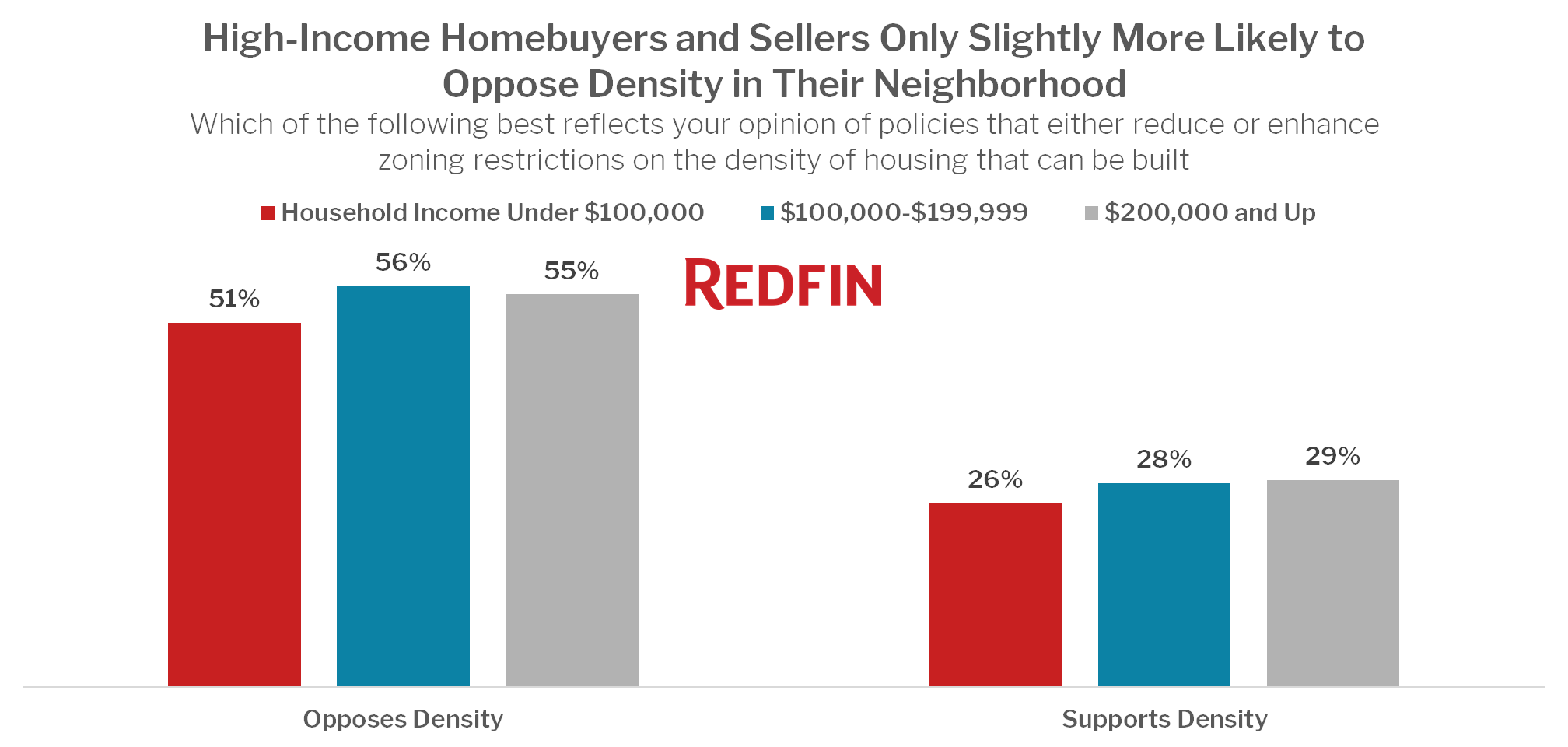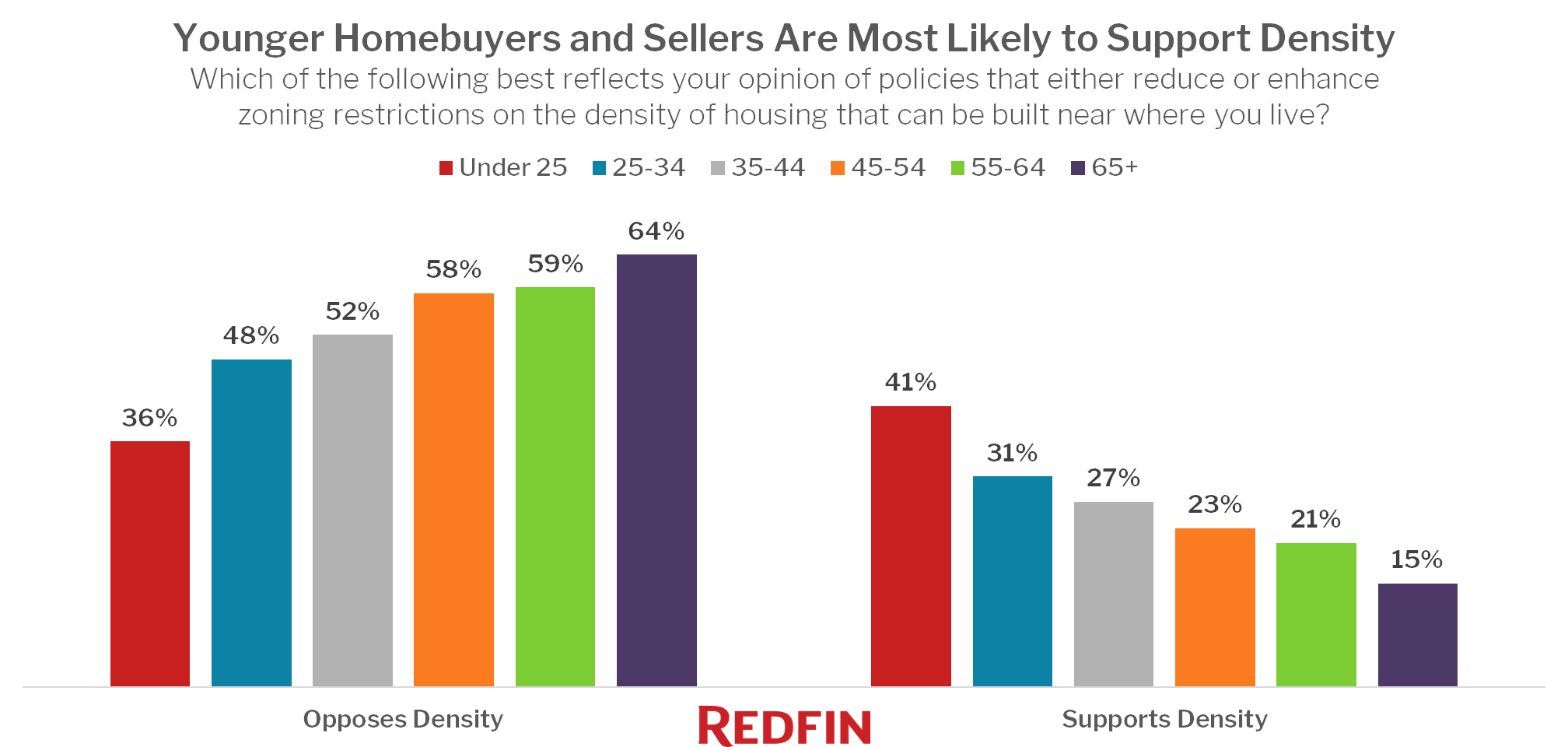Even as homebuilders and affordable housing advocates are pointing to the need for changes in local regulations to reduce housing costs, homebuyers and sellers seem to be largely in favor of holding on to some elbow room. A recent survey by Redfin, the Seattle-based real estate company, found those groups are more likely to oppose the building of dense housing than they are to support it. Fifty-three percent of homebuyers and sellers support zoning policies that limit housing density near where they live while only 27 percent support policies that enable it.
Redfin surveyed more than 3,000 consumers who had either bought or sold a primary residence in the past year or planned to do so in the upcoming one. They were asked to select as responses:
"I support zoning policies that limit the number of dense housing units, such as multi-family homes, that can be built near where I live."
Or
"I support zoning policies that make it possible for more dense housing units, such as multi-family homes, to be built near where I live." Respondents were also given the option of a "don't know" response.
The company found some key differences in attitudes across racial groups. African Americans, both homebuyers and sellers, were more receptive to less restricting zoning with 39 percent coming down on either side of the issue. By contrast, among white homebuyers and sellers 56 percent opposed greater density and 23 percent supported it. Latinx and Asian Americans were also more likely than white respondents to support density.

Redfin said while it might be easy to think that it is just wealthier people who want to limit density and that some of the openness expressed by African Americans might be due to income inequality, it doesn't appear that income enters into the equation. "When you break down the results by income, homebuyers and sellers in every income bracket were far more likely to oppose density than to support it."

Age however was a factor. The older a group of respondents the more opposed they were to loosening regulations. Respondents over the age of 65 were more than four times as likely to be anti-density than to support it, 64 percent versus 15 percent. The only age group where density was favored was those under age 25 where it was preferred 41 percent to 36 percent.

Redfin chief economist Daryl Fairweather said, "People who don't want dense housing in their neighborhood often reason that they don't want to see the character of their neighborhood change. Minorities, however, may be less likely to have sentimental feelings about the types of housing that characterize their neighborhoods because zoning policies have often contributed to racial inequality through segregation. However, the minorities who do oppose dense zoning may be opposed to the gentrification that accompanies dense luxury condos and apartments."







